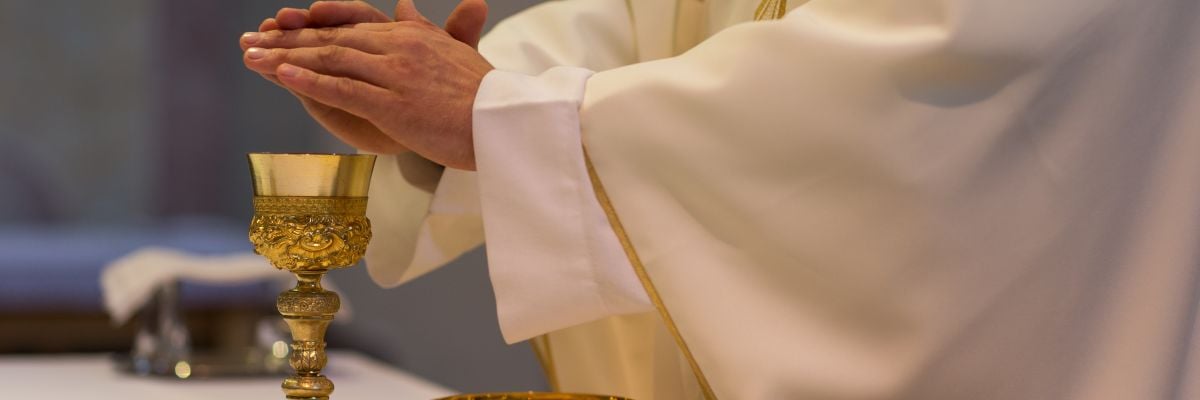
Question:
Answer:
The Eucharist is consecrated by the power of the Holy Spirit and the presiding priest’s saying the essential words of consecration (CCC 1353).
The approved and minimally necessary words [for the Roman/Latin Rite] that must be said for a valid consecration are “This is my body” in offering the bread and “This is my blood” or “This is the chalice of my blood” in offering the wine. If a priest omits any of these essential words, the consecration is invalid.
From Office for the Liturgical Celebrations of the Supreme Pontiff:
[As] the theologian Joseph Ratzinger put it so well: “In order that an event that occurred in the past is made present, the words must therefore be pronounced: This is my body—this is my blood. But in these words it is assumed that the I of Jesus Christ speaks. Only he can say these things; they are his words. No man can pretend to declare the I of Jesus Christ as his own. No one can say here are many communities can transmit, rather it can only be founded on the ‘sacramental’ authorization given to the whole Church by Jesus Christ himself. . . . And this is exactly the ‘priestly ordination’ and the ‘priesthood'” (20).



